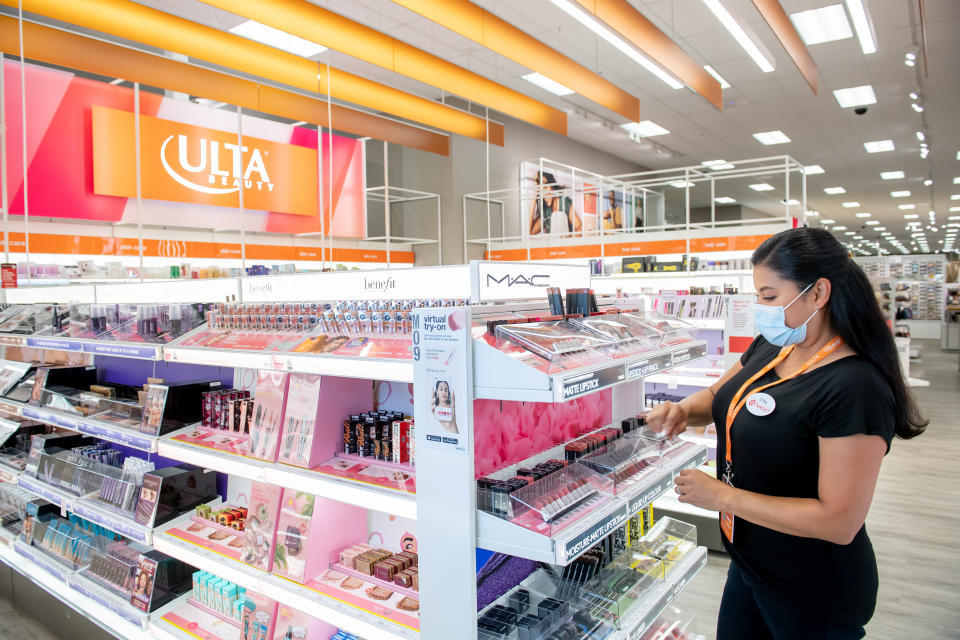Through Acquisitions and Partnerships, Specialty Beauty Retail Is Picking Up Steam

Beauty’s specialty retailers will be going into the fall and holiday seasons with even more traction, thanks to new partnerships and acquisitions.

More from WWD
Sephora has started opening shops-in-shop with Kohl’s; Ulta has begun rolling out a curated assortment into Target, and Thirteen Lune has inked a deal with J.C. Penney. On top of that, Sephora signed a deal to buy Feelunique, giving it greater access to U.K. beauty shoppers, and digital powerhouse The Hut Group signed an agreement to buy Cult Beauty, expanding its online reach.
All in all, the moves indicate that beauty remains a hot category retailers want. These partnerships may result in more foot traffic or bigger basket sizes, but they also represent the next evolution in beauty retailing: giving consumers what they want to buy, where they want to buy it.
“At the end of the day, it’s about reaching the consumer where she is. And it’s a long time coming,” said Larissa Jensen, beauty industry analyst at the NPD Group.
The Kohl’s deal gives Sephora a bigger footprint in middle America, while the Ulta and Target partnership expands Ulta’s reach to more similar shoppers. “Ulta is targeting greater numbers of their own consumer,” Jensen said.
With the Thirteen Lune partnership, J.C. Penney will add more Black- and brown-owned beauty brands, which Jensen said may allow them to better align with consumer values. “What they bring to the table represents a lot of what people are talking about right now,” she said.
Beyond partnerships, some retailers — especially Walmart — are pushing further into beauty, too, said Mousumi Behari, an e-commerce expert with Avionos.
“Beauty shopping has become much more accessible to everyone,” Behari said. “Walmart is upping their game and putting a lot of independent brands in there as well.…The consumer just has a plethora of choices.”
All those choices leave some legacy beauty retailers, namely mid-tier department stores, in a difficult position, experts noted.
Jensen said it’s important for retailers, including department stores, to differentiate themselves with options like services.
Jane Hali, chief executive officer at retail investment firm Jane Hali & Associates, said Saks Fifth Avenue has done that by focusing on wellness. Nordstrom has also upped its services as they relate to beauty, partnering with Dr. Dennis Gross for injectable offerings, and adding HydraFacial to the mix.
But many department stores are struggling with modernization and foot traffic. “No one was in the department stores even before the pandemic,” Hali contended.
Specialty retailers continue to pick up steam even beyond physical retail partnerships. Sephora’s acquisition of Feelunique, a major e-commerce player in the U.K., may allow it to enter that market in a meaningful way for the first time. The Hut Group, which is running a digital empire of brands and e-commerce, built out online sales even further with acquisitions of Dermstore and with Cult Beauty.
Those digital beauty acquisitions mimic what has been going on in activewear, Hali said. Both beauty and activewear remain in-demand categories, which has sparked acquisitions in both segments, she said, ticking off Wolverine’s deal to buy Sweaty Betty and Levi Strauss’ purchase of Beyond Yoga.
With the e-commerce acquisitions, “They get more activity on their websites, yes, but it’s the same situation as active — these are great brands and before they go to the competition, they want to buy it up,” Hali said.
“It comes down to a revenue play, and garnering more share of the market,” Behari said. “Retailers realize how much money is in beauty.”
FOR MORE FROM WWD.COM, SEE:
Should VCs Be Approaching Beauty Differently?
Mushrooms Are Becoming a Beauty and Wellness Ingredient Darling
The 2021 Beauty Inc Power Brands
Sign up for WWD's Newsletter. For the latest news, follow us on Twitter, Facebook, and Instagram.